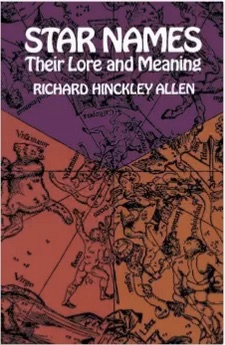I’m a big proponent of self-driven learning. For a writer, I think that’s essential. So here are some of the non-fiction books I’ve read in the last couple of months.
 Leibniz: An Intellectual Biography. I had never heard of Gottfried Wilhelm Leibniz until I read Neal Stephenson’s Baroque Cycle (which you should read, if you haven’t already). Leibniz was part of that last generation of thinkers (in the European tradition) who could arguably know everything — he was a peer, and sometimes an antagonist, of Isaac Newton. And Leibniz wanted to know everything, and assimilate it into a single intellectual whole, and moreover to put it into practice for the benefit of humankind — theoria cum praxi being his lifelong motto. And he was hugely influential — the reason he and Newton tangled (Stephenson readers will remember) is because they both claimed credit for inventing calculus.
Leibniz: An Intellectual Biography. I had never heard of Gottfried Wilhelm Leibniz until I read Neal Stephenson’s Baroque Cycle (which you should read, if you haven’t already). Leibniz was part of that last generation of thinkers (in the European tradition) who could arguably know everything — he was a peer, and sometimes an antagonist, of Isaac Newton. And Leibniz wanted to know everything, and assimilate it into a single intellectual whole, and moreover to put it into practice for the benefit of humankind — theoria cum praxi being his lifelong motto. And he was hugely influential — the reason he and Newton tangled (Stephenson readers will remember) is because they both claimed credit for inventing calculus.
Leibniz’s own writing can be dense, and some of his ideas difficult to access. But Antognazza’s biography is very readable, and ties many of Leibniz’s ideas together in a narrative of his life as a courtier, correspondent, librarian, thinker, lawyer, theologian, and mine engineer.
Bonus: aging Leibniz was ahead of his time for fabulous wardrobe, dressing in fur stockings (to combat gout).
 A History of Venice. For a long time, Lord Norwich’s one-volume history of Venice was the standard. It may still be that (I’m no expert), but in any case it’s still a highly readable account of the rise, fall, and eventual groveling surrender (to Napoleon) of the Venetian Republic.
A History of Venice. For a long time, Lord Norwich’s one-volume history of Venice was the standard. It may still be that (I’m no expert), but in any case it’s still a highly readable account of the rise, fall, and eventual groveling surrender (to Napoleon) of the Venetian Republic.
I came to this book by way of an interest in Byzantium, which began with a trip seven years ago to Ravenna. Northeastern Italy has deep and tangled history with Greece and Asia Minor, of which I had been basically ignorant. Lord Norwich’s (yes, he is a viscount and an English peer) three volumes on Byzantium were a great introduction to a lay person (Greek-, Italian-, and Latin-reading, not not a historian), and I wishlisted his book on Venice.
I finally read it this spring. The book has limitations, focusing as it does more on political figures than on the merchants and manufacturers who have arguably been as important as the doges, but it sets out the republic’s history concisely, clearly, and with the compassion that I think the best historians must have.
 The Quest for the Historical Israel: Debating Archaeology and the History of Early Israel. This book is a sort of verbal duel between two archaeologists, and it’s fascinating.
The Quest for the Historical Israel: Debating Archaeology and the History of Early Israel. This book is a sort of verbal duel between two archaeologists, and it’s fascinating.
For those of you who may not have been following it, the archaeology of Israel has been going through tumultuous times as it has matured. Archaeologists now lie scattered along a spectrum that runs from
- the super-conservatives still trying to dig up artifacts that will prove the historicity of the Biblical text (this is the view that makes it most easily into Sunday Schools, of course) through
- the conservatives who think the historical sections of the Bible contain much real history along with a lot of folk lore and legend, and acknowledge that much of the Bible has to read “against the grain” and from late to early, rather than the other way around, to
- the moderate revisionists, who basically agree with conservatives, only think the mix tilts more towards folklore and propaganda and less towards accurate history, finally reaching
- the radicals, who think the whole was made up in the fourth century B.C.E. in Babylon.
 The duel here is between Amihai Mazar (conservative) and Israel Finkelstein (moderate revisionist), which is to say, by proponents of points of view in the middle of the spectrum. There is large agreement between them, but the points of disagreement are noted and interesting (on David’s Jerusalem, Finkelstein says it was a small village capital of a highland chieftain, and Mazar says we can’t know, because we haven’t found it yet; on the United Monarchy, Finkelstein says it never exited and is the retrojection of the real first Israelite state, Israel under the Omrides, while Mazar says the jury is still out).
The duel here is between Amihai Mazar (conservative) and Israel Finkelstein (moderate revisionist), which is to say, by proponents of points of view in the middle of the spectrum. There is large agreement between them, but the points of disagreement are noted and interesting (on David’s Jerusalem, Finkelstein says it was a small village capital of a highland chieftain, and Mazar says we can’t know, because we haven’t found it yet; on the United Monarchy, Finkelstein says it never exited and is the retrojection of the real first Israelite state, Israel under the Omrides, while Mazar says the jury is still out).
Star Names: Their Lore and Meaning. If you’ve followed me on social media at all, you know I like observing the rotating heavens. Allen’s book is a compendium of names of stars and constellations, along with astronomical data about them, organized by constellation.
I felt like a gull picking over a garbage dump reading this book. There’s a lot of data in here I’ll never care about, but there are gems, too. Cancer was once of the Gate of Men, through which the ancients thought humans descended from the sky to be born. And Capricorn (associated with the scapegoat / Azazel of Leviticus 16) was the Gate of the Gods, through which they eventually ascended to become immortal.
Bonus: a section up front compiling famous authors’ laughable astronomical mistakes.

 Follow
Follow





































